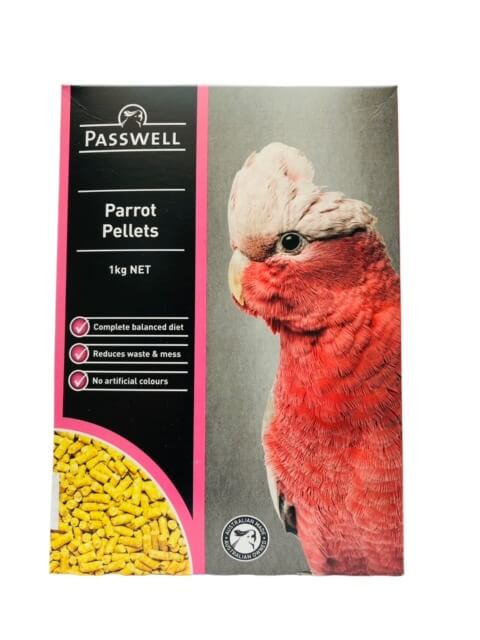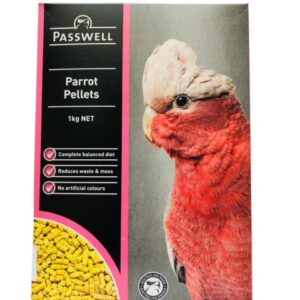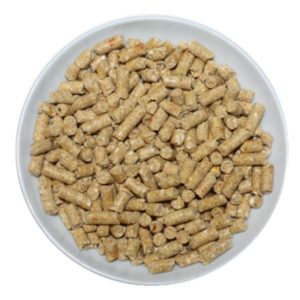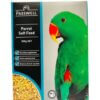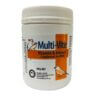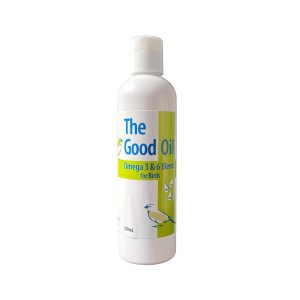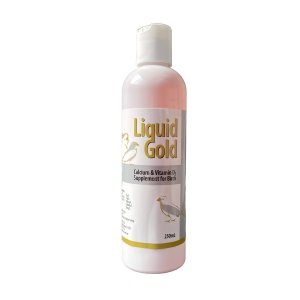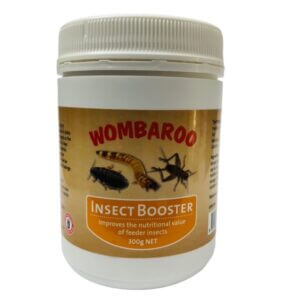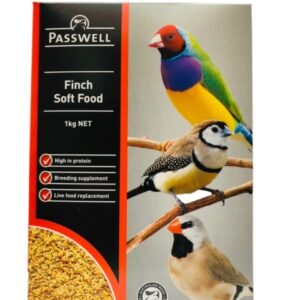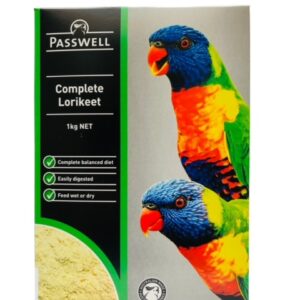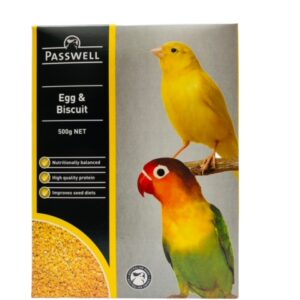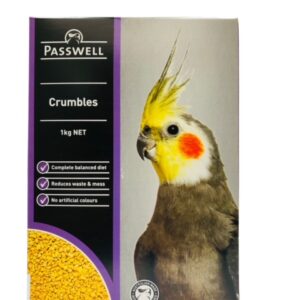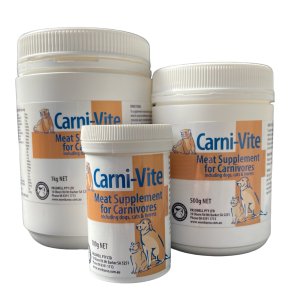PARROT PELLETS
From: $13.60 inc GST
Balanced diet for all parrots including ringnecks, conures, amazons, eclectus, cockatoos & macaws. Use as a healthy replacement to seed mixes.
Key Features
- Totally edible– Reduces waste and mess.
- Better Nutrition– Enriched with essential amino acids (lysine, methionine), omega-3 & 6, vitamins & minerals.
- Improved Health – Low fat for weight control, with quality protein for good feather condition.
Available in 1kg and 5kg
Out of stock
Out of stock
Ingredients:
Processed cereals & legumes (wheat, barley, oats, peas, lupins), soy & whey protein isolates, lysine, methionine, vegetable oils, omega-3 & omega-6 fatty acids, carotenoids, vitamins A, B1, B2, B3, B5, B6, B9, B12, C, D3, K, biotin, choline, calcium, phosphorus, potassium, sodium, magnesium, zinc, iron, manganese, copper, iodine, selenium, 1g/kg Actigen® dried yeast prebiotic.
Typical Analysis:
Protein 15%
Fat 6%
Energy 14MJ/kg
Feeding Guidelines:
Parrots need to modify their feeding technique to eat pellets. Initially they may disintegrate the food, but soon learn to consume the whole pellet, including any fine powder produced.
Direct Change to Pellets: Applies to companion pets and larger parrots. Initially remove all seed and treats and provide only pellets. If birds do not eat during the day, replace some of the seed before nightfall and try again the next day. If this is not successful, try gradually introducing pellets.
Introducing Pellets: For smaller parrots and difficult-to-convert birds. Start with a 50:50 mix of pellets and seed then slowly reduce the proportion of seed over a number of days.
Body weight and bird health should be closely monitored to ensure birds are consuming pellets.
Feeding Guide:
| Weight | Feed (per day) | Species Example | Weight | Feed (per day) | Species Example |
| 70g | 10g (1 scoop) | Small Conure | 300g | 25g (2 ½ scoops) | Galah |
| 100g | 12g (1 ¼ scoop) | Cockatiel, Quaker | 400g | 30g (3 scoops) | Eclectus, Amazon |
| 125g | 15g (1 ½ scoop) | Ringneck, Rosella | 800g | 50g (5 scoops) | Cockatoo |
| 200g | 20g (2 scoops) | Alexandrine | 1000g | 60g (6 scoops) | Large Macaw |
What to feed with Parrot Pellets:
Pellets are a balanced diet and can represent up to 80% of the total diet. Offer a range of fruit & vegetables, small amounts of treats (e.g. nuts) along with fresh seeding grasses or sprouted seed.
Breeding Birds:
Increase pellets fed by up to 50% and supplement with Parrot Soft Food.
| Weight | N/A |
|---|---|
| size | 1kg, 5kg |
Related products
WOMBAROO
FINCH SOFT FOODSupplement for finches and softbills
WOMBAROO
EGG & BISCUITSupplement for cage & aviary birds
WOMBAROO
CRUMBLESA healthy replacement to seed mixes
WOMBAROO
CARNI-VITESupplement for meat fed diets

